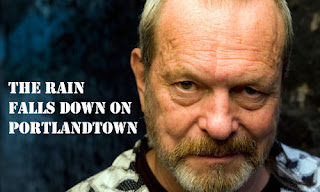Roman Kolger (Thomas Schubert) has a problem. He's been in prison since the age of 14 and now, at age 19, needs to find work in order to gain parole. He's not terribly animated, motivated or skilled, so it seems awfully befitting when he falls into a job as an undertaker. Breathing (Atmen) is a slow-moving, Austrian character piece that hovers warily over its protagonist, rarely offering hope but, patiently, revealing small details and slight grace notes that allow for insight into Roman's plight.
At first, there is only one thing we know about Roman; he's alone in this world. The only advocate he has is a social worker who drives him around town, prepping him for an upcoming parole hearing. The film is predominantly built upon extended moments of observation that yield small reveals, most of which occur in the spare moments when Roman risks interaction with others. There is a fleeting encounter with a girl on the train back to his holding cell. A failed attempt to reach out to a co-worker. And another involving an older woman...but I don't want offer up too much, especially since this is a film that hinges so delicately on little details.
Austrian actor-turned-director Karl Markovics understands that explanations aren't of primary concern to his story. Instead, he sticks with small events and repeated passages, like the indignities that Roman must endure each night as he returns to prison, to draw in the viewer. It's a particularly strong directorial debut for Markovics, who has spent much of his prior career on television and in the theater. Likewise, Schubert's turn as Roman, his first film role, has an appropriately affectless feel to it. He plays Roman as someone who has been abandoned by society; a truth that only deepens as the evidence of his life unfolds.
Breathing (Atmen) will screen for the public at the Lloyd Mall 6 on Feb. 10th at 6:15pm and, again, at Cinemagic on Feb. 12th at 8pm. A final screening will occur on Feb. 14th at the Lake Twin Cinema at 6pm.
Remember to find and "like" us on our Facebook page.
Subscribe to the blog's feed here.












